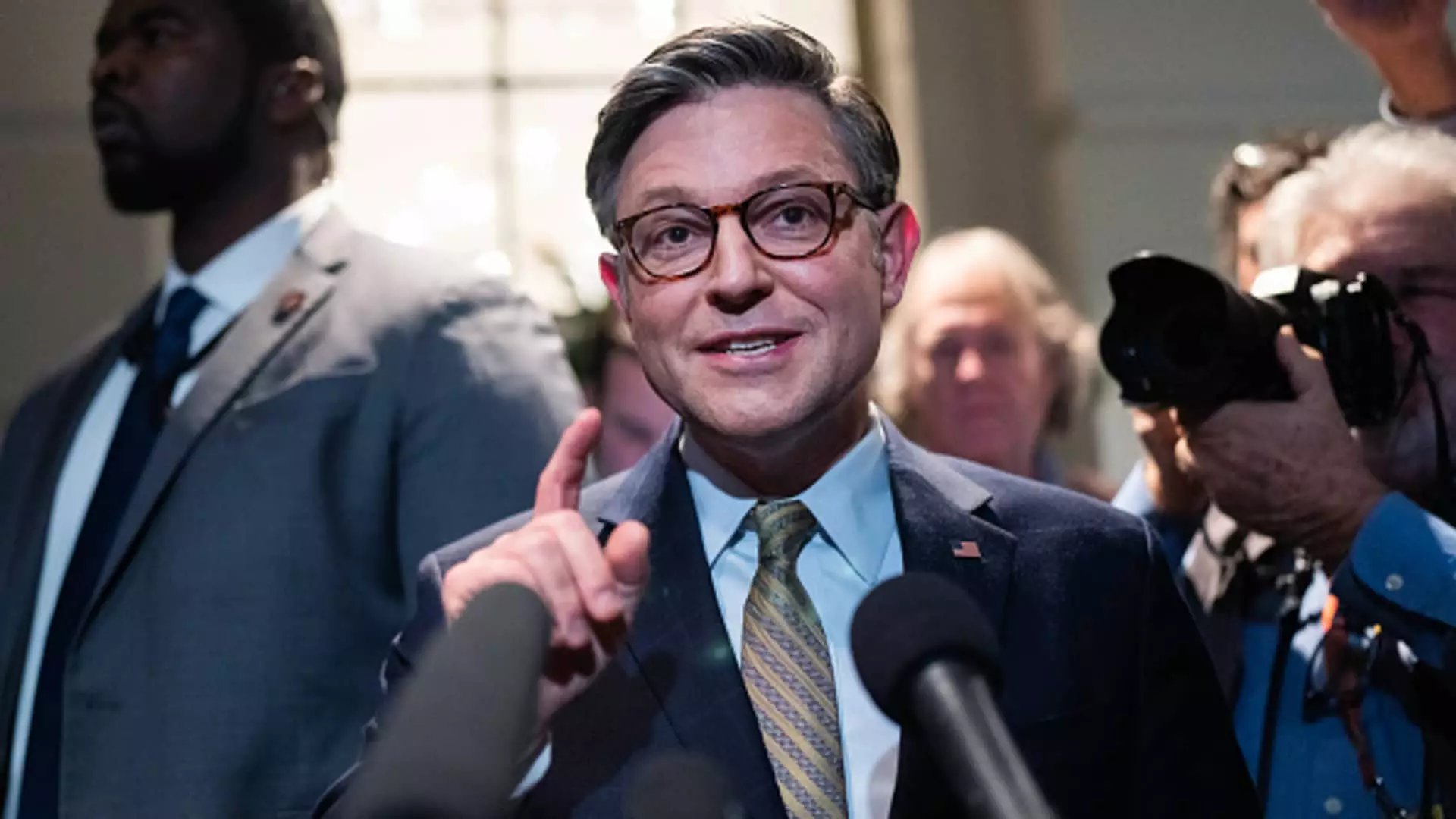The impending deadline for federal government funding generated significant urgency in the House of Representatives, leading to the swift passage of a bipartisan spending bill last Friday. This legislative development occurred mere hours before the government was set to experience a funding lapse at midnight ET, underscoring the high-stakes environment in which lawmakers operate. The bill aims to maintain government operations at existing funding levels for three more months, along with provisions for disaster relief and agricultural aid.
The House’s decision to forward the bill to the Senate reflects a considerable bipartisan effort, garnering substantial approval from Democratic members while also receiving the support of a significant number of Republican lawmakers. This cooperative spirit indicates a unified desire to avert a costly government shutdown—especially pertinent when the ramifications could impact the paychecks of over 300,000 federal employees just days before the holiday season. Upcoming debates in the Senate, however, suggest continued negotiations may arise, especially considering the intricate parliamentary procedures that can empower individual senators to delay or disrupt legislative progress.
Following the House’s decisive vote, the responsibility now rests with the Senate, which is controlled by the Democratic Party. The likelihood of passing the funding bill in its current form appears plausible; nevertheless, the unpredictability of Senate dynamics could pose significant challenges. Senators hold considerable power to slow the legislative process, and their individual priorities may ultimately shape the trajectory of funding legislation.
If the Senate does approve the bill, it will rapidly be presented to President Joe Biden for his signature. The administration has expressed support for the legislation despite acknowledging that it may not encompass all desired provisions. White House press secretary Karine Jean-Pierre emphasized the need to advance the bill, reflecting a pragmatic approach to legislative negotiations in a politically divided environment.
Complicating the legislative landscape is the influence of former President Donald Trump and billionaire Elon Musk, whose critiques led to the unraveling of a previously negotiated funding deal earlier in the week. Trump’s insistence on including a two-year suspension of the U.S. debt ceiling as part of any agreement evoked staunch opposition among several Republican staunch conservatives. The debt ceiling consistently emerges as a contentious issue in U.S. politics, frequently serving as a battleground for party negotiations and power plays.
The defeat of the earlier funding proposal starkly highlighted the internal discord within the Republican Party, even after its leadership had publicly endorsed the plan. The absence of the debt limit hike in the final bill stressed the challenges that await the incoming administration, particularly in light of the significant factional divide among House Republicans. This political fracture illustrates the ongoing struggle for leadership and consensus within the party as preparations continue for the new congressional session.
The recent developments in Washington reveal much about the current state of governance, reflecting both the complexity and precariousness of bipartisan collaboration in a polarized political environment. As the government inches closer to a potential crisis, the focus remains on balancing competing priorities while ensuring vital services and support continue without interruption.
With the holiday season around the corner and federal workers relying on timely compensation, the actions of lawmakers are scrutinized now more than ever. The evolving dynamics between traditional budgetary negotiations, political pressure from influential figures like Trump and Musk, and the various factions within the Republican majority signal that future legislative sessions may be fraught with challenges.
While immediate funding needs have been addressed, the long-term governance landscape remains tumultuous. Continued vigilance and negotiation will be required to foster effective and cohesive policymaking in the face of underlying political discord. As the Senate deliberates on the current bill, it becomes evident that the resilience of American democracy is increasingly tested by the interplay of individual ambition, party loyalty, and the urgent necessities of governance.


Leave a Reply